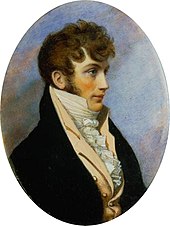Kaiphranos
Donor
Alright, it's Friday in Greenwich, so I'll go ahead and post the discussion thread for our first story, "He Walked Around the Horses," by H. Beam Piper. If you have a book or story you'd like the Alternate History Book Club to read, feel free to post it in the main thread.
Given that this is a place for discussion, there may be spoilers. (If you're the sort of person who cares about that.)
And speaking of discussion, here are some questions to start people off. (These are just for convenience--certainly not mandatory or anything. Feel free to answer any or none of them, as it suits you.)
0. Did you like the story? Why or why not?
1. What did you think of the epistolary form of the story, with the events being presented through letters and reports?
2. How plausible did you find the alternate history elements to be, given that the POD?
3. Are there any allohistorical details you found particularly interesting? (Talleyrand as a Cardinal, etc.)
4. The main event of this story is basically an ISOT on a very small scale. What did you think of the various characters' reactions to Bathurst's appearance? How does this compare to similar ISOT-type stories you've read, either on this site or elsewhere?
5. Based on the information in the story, is there anything you can infer or speculate about the timeline Bathurst arrives in?
6. Are there any other elements (AH or otherwise) that you found interesting or noteworthy?
Given that this is a place for discussion, there may be spoilers. (If you're the sort of person who cares about that.)
And speaking of discussion, here are some questions to start people off. (These are just for convenience--certainly not mandatory or anything. Feel free to answer any or none of them, as it suits you.)
0. Did you like the story? Why or why not?
1. What did you think of the epistolary form of the story, with the events being presented through letters and reports?
2. How plausible did you find the alternate history elements to be, given that the POD?
3. Are there any allohistorical details you found particularly interesting? (Talleyrand as a Cardinal, etc.)
4. The main event of this story is basically an ISOT on a very small scale. What did you think of the various characters' reactions to Bathurst's appearance? How does this compare to similar ISOT-type stories you've read, either on this site or elsewhere?
5. Based on the information in the story, is there anything you can infer or speculate about the timeline Bathurst arrives in?
6. Are there any other elements (AH or otherwise) that you found interesting or noteworthy?
